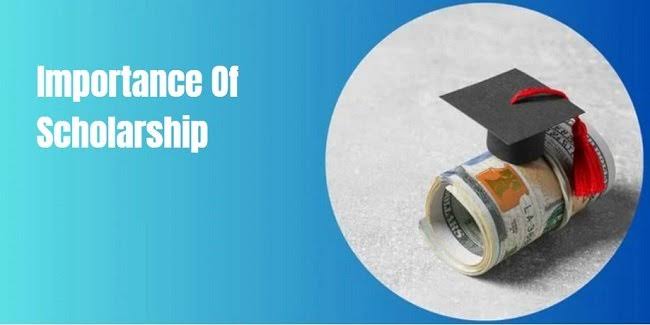Academic achievement is still very important for getting scholarships in Canada and around the world. Scholarships can be based on merit, financial need, sports, or arts, but good grades are the most common and easiest way to qualify. As more people compete for limited scholarships, having strong academic records matters more than before.
Maintaining high academic standards not only opens the door to funding but also signals discipline, commitment, and potential for future success. This article explores how academic performance influences scholarship decisions, and why students must take their studies seriously to unlock valuable educational opportunities.
Defining Academic Achievement in 2025
Academic achievement in 2025 encompasses more than just grade point averages (GPAs). It now includes performance in standardized tests, rigor of coursework, class ranking, and participation in advanced or honors programs. Many scholarship providers also assess how well students handle academic challenges, such as maintaining grades while participating in extracurriculars or holding part-time jobs.
With the rise of digital learning platforms, academic achievements are now often evaluated with greater context. For instance, students taking online Advanced Placement (AP) courses, International Baccalaureate (IB) programs, or dual-credit college classes demonstrate a willingness to go beyond standard requirements—something scholarship panels consider favorably.
Scholarships and Minimum Academic Requirements
Most academic scholarships in Canada and abroad set minimum GPA or grade thresholds. As of 2025, many prestigious awards require a GPA of 3.5 or higher on a 4.0 scale or an 85%+ average. Some universities use weighted averages to account for the difficulty of courses taken, while others focus on consistency and upward academic trends.
Failing to meet the minimum academic requirement often results in automatic disqualification, regardless of other qualifications like leadership or volunteer work. Thus, academic performance serves as a basic filter before a student’s full application is reviewed in depth.
Academic Excellence and Competitive Edge
Academic excellence offers a competitive edge in scholarship applications, especially for highly selective awards. Programs such as the Vanier Canada Graduate Scholarships, Schulich Leader Scholarships, or the Trudeau Foundation Scholarships prioritize candidates with exceptional academic credentials. These achievements are seen as indicators of intellectual capacity, curiosity, and perseverance.
In a competitive landscape, even a marginally higher GPA can tip the scales in an applicant’s favor. Strong academic records often lead to shortlisting, while top-tier transcripts signal to evaluators that the applicant is capable of thriving in a demanding academic environment.
Relationship Between Academic Achievement and Leadership Potential
Many scholarship programs in 2025 seek well-rounded candidates—those who combine academic success with leadership, innovation, and community engagement. However, academic achievement is often the foundation upon which other attributes are evaluated.
A student who excels academically while also taking on leadership roles in school clubs, sports teams, or volunteer organizations is seen as highly disciplined and time-efficient. Academic performance adds credibility to claims of responsibility and maturity, further validating leadership potential in the eyes of selection committees.
The Role of Academic Achievement in Renewable Scholarships
Many scholarships awarded today are renewable, meaning they provide funding over multiple academic years—provided the recipient maintains a specific GPA or academic standing. In such cases, continued academic achievement is essential for retaining scholarship support.
For instance, a student may be awarded $5,000 per year for four years but must maintain a minimum GPA of 3.3 each term to continue receiving the funds. Falling below that threshold can lead to partial or total loss of financial support, making sustained academic success crucial even after the award is won.
Impact on Graduate and Research-Based Scholarships
At the graduate level, academic performance becomes even more significant. Scholarships for master’s and doctoral studies in 2025 heavily depend on academic transcripts, research history, and academic references. Candidates are expected to have not only high grades but also a demonstrated capacity for critical thinking and academic writing.
Graduate scholarships often fund research-intensive programs, meaning students with strong academic records are viewed as more capable of contributing to their fields of study. Academic awards from undergraduate years also enhance the profile of applicants seeking prestigious graduate scholarships or fellowships.
Academic Achievement in International Scholarship Applications
For international students applying for scholarships in Canada or Canadian students seeking funding abroad, academic records carry even more weight. Because selection committees may not be familiar with every applicant’s school system, grades and academic honors offer the most objective basis for comparison.
In 2025, many global scholarships—including the Fulbright Program, Rhodes Scholarship, and Erasmus+—place substantial emphasis on academic performance. Strong transcripts, supported by recommendation letters that highlight academic discipline, are critical in standing out among thousands of global applicants.
Balancing Academics with Other Qualities
While academic achievement is essential, it is not the sole criterion. Many scholarships consider essays, interviews, extracurricular activities, and community involvement. However, in most cases, these are evaluated after academic filters are applied.
Striking a balance between strong grades and personal development is the best strategy. Students are advised to develop time management skills, seek academic help when needed, and stay engaged in both academics and non-academic pursuits. This well-rounded approach not only helps in scholarship success but also prepares students for the demands of higher education and future careers.
Conclusion
As of June 2025, academic achievement remains the cornerstone of scholarship eligibility. Whether applying for undergraduate, graduate, or international programs, students must demonstrate strong and consistent academic performance to secure and retain funding. While other factors like leadership and community service are important, academic records often determine who makes it past the first round of selection.
In a world where education costs are rising and competition is intensifying, maintaining high academic standards is one of the most reliable ways to unlock life-changing scholarship opportunities. For students aiming to stand out and succeed, excellence in the classroom is both a requirement and a reward.




Nice